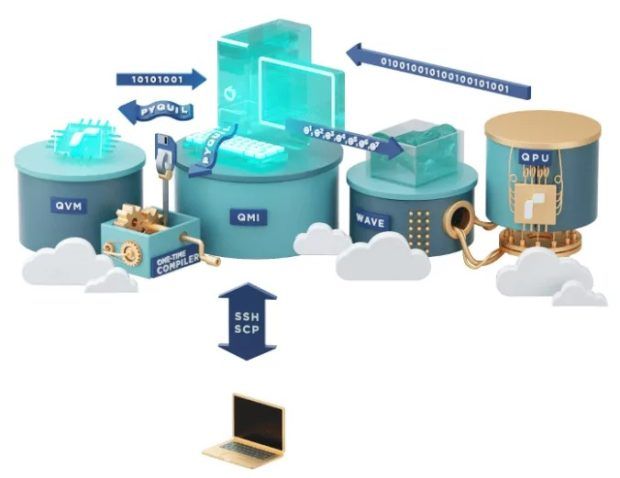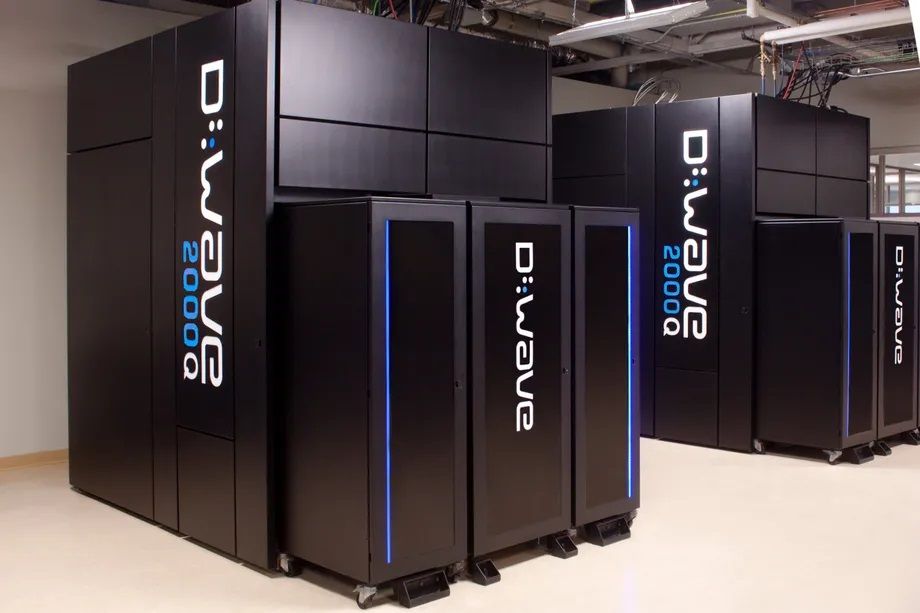Quantum cloud computing is a field that emerged with the convergence of quantum computing and cloud computing, two of the most influential technologies of our time. In the simplest terms, quantum cloud computing enables quantum computing resources to be available over the cloud.
Quantum computers compute differently, allowing them to function at much greater speeds and with far more complex calculations than conventional computers. The capacity of quantum computers to accelerate considerably faster is because they employ quantum physics in their processing power. Users utilize these quantum-powered computers over the internet through cloud computing, thanks to the emergence of quantum cloud computing.
What is quantum cloud computing?
Quantum cloud computing allows organizations and academics to access quantum computers via the cloud. Users can now use a wide range of quantum cloud computing services. They are employed to solve tough issues that require powerful computing. The architecture and performance of different quantum cloud computing services vary.
The current state of the quantum cloud computing
With the technology developing at a breakneck pace, huge firms like IBM, Google, Microsoft, and Amazon are on track to create quantum cloud computers. They use quantum computers with cloud computing technologies that a network may access without needing a physical quantum computer. It implies that individuals as basic users will soon be able to utilize quantum computers in the cloud. They are making the quantum computing experience more accessible than ever before.
However, with the advancement of technology and the development of new technologies, many individuals will be unable to utilize such gadgets owing to their complexity, negatively impacting people’s learning rates in quantum computing.
According to the 2020 test study “Cloud Quantum Computing Concept and Development: A Systematic Literature Review“, the IBM quantum cloud computer is more beginner-friendly and opens more options and learning strategies for the users while giving a better processing time than others.

How is quantum cloud computing used?
Quantum computing is a new field that has yet to be widely commercialized. Some tech companies have begun guiding how businesses may utilize this technology in the future. For most firms, taking advantage of quantum computing on the cloud appears to be the most viable option.
Quantum cloud computing allows users to connect directly to emulators, simulators, and quantum processors. Vendors provide programming languages, tools, and documentation for implementing quantum computing applications in various ways.
Businesses and researchers mostly use quantum cloud computing to test their quantum algorithms. Quantum algorithms are initially created on conventional computers and then tested in real quantum computers via the cloud.
Businesses and researchers mostly use quantum cloud computing to test their quantum algorithms
Quantum computing has a high cost and technical barrier to entry; therefore, its deployment is limited. Quantum computing systems are costly and time-consuming to develop, deploy, manage, and maintain. Companies that already use these technologies employ cloud-based quantum computing via their build platforms.
There is a lot of research and development in this area. Quantum cloud computing is used to study, experiment, and test quantum theories. Teaching is another application of quantum cloud computing. Quantum physicists can easily grasp their ideas and conduct research without having access to a physical quantum computer in their labs.
Nonlinear problems with many solutions benefit from quantum computing, which has the edge over conventional computing in such circumstances. Suppose a multi-parameter nonlinear issue that would take years to solve using ordinary computers is the obstacle to progress. In that case, it’s time to design algorithms and put them through their paces in the cloud.
How does quantum cloud computing work?
Quantum cloud computing services are relatively new. Their offerings are similar to early virtualization solutions but for quantum processing. A typical quantum cloud computing platform for quantum software testing works more or less as described below:

Quantum cloud computing connects developers’ conventional computers to the quantum machine image (QMI). QMIs are virtualized programming and execution environments for creating and executing quantum software programs.
The programmed code is run on quantum virtual machines (QVMs). QVMs are quantum machines that execute and generate a waveform on quantum processors. The quantum machine image communicates with the quantum processing unit (QPU), a quantum chip with interconnected qubits. Waveforms are used to program these qubits. The data received by the QMIP is processed and transmitted back to the traditional computer through the QPU.
Quantum development
Although quantum computing is still in its infancy, it may significantly impact many areas as long as the implementation and error correction improve. This cutting-edge technology will reach a threshold with more people getting involved and working together. It is possible to test quantum coding and software through emulators and simulators.
Using a quantum computer to design and test quantum algorithms will be considerably faster than traditional computing because all the necessary elements of such calculations can be combined in one place. Quantum cloud computing offers a direct interface to quantum circuits and quantum chips, enabling the final testing of quantum algorithms.
Quantum cloud computing has opened the door for users to make enhancements to quantum computing. Companies and academics may practice using quantum computing on the cloud without waiting for quantum computing technology to mature and become widespread.
The quantum computing market is anticipated to reach $280M, according to MarketsandMarkets research.
Top quantum cloud computing vendors
Quantum computing attracts interest from big names in science and tech, the military sector, specialized firms, and government organizations. While technology giants are developing their quantum systems, they may collaborate with seasoned startups.
Here are some of the quantum cloud computing providers:
• IBM Q Experience
In 2016, IBM created a quantum network called the IBM Q network. Since then, IBM has been one of the leading players in quantum computing. Qiskit is a cloud-based software development kit that allows you to connect to IBM Q (an open-source quantum computing program).
• Microsoft Azure Quantum
Microsoft offers QDK, a quantum script language based on Q# for quantum computing development. Azure Cloud supports quantum computers developed by Microsoft’s partners. Microsoft has also developed its quantum system called Station Q. The topological qubit method for producing stable quantum bits is a way that Microsoft has developed to create large quantities of quantum computers.
• Amazon Braket
Amazon announced the Bracket at the end of 2019, saying it began quantum computing research. Amazon provides the whole system as a service by combining quantum computing with the cloud. Amazon also established the Amazon Quantum Solutions Lab, a physical laboratory.
• Google’s Quantum Playground
Quantum Playground is a 3D quantum state visualization tool for designers. It also includes a user interface, programming language, and 3D quantum state display. Google claimed quantum supremacy in late 2019 by utilizing the 54-qubit Sycamore processor.

• D-wave Leap
D-wave, based in Vancouver, Canada, is the first to market a commercially available quantum computer. D-wave is another young firm that has attracted more than $200 million in investment. D-wave systems recently announced free access to its quantum system over Leap cloud service.
• Rigetti Forest
A quantum computing startup Rigetti is a firm that makes tools for the field. Forest is their product, which includes a tool kit for quantum computing. A programming language (Rigit), development tools, and example algorithms are included.
• Xanadu
Xanadu launched the world’s first photonic quantum cloud platform with 8 and 12 qubits. The technology is said to be being tested by companies like Creative Destruction Labs, Scotia Bank, BMO, and Oak Ridge National Laboratory (ORNL).
The future of quantum cloud computing
According to Gartner’s Martin Reynolds, cloud-based quantum computing is more difficult to deploy than deep learning. As a result, the learning curve will be steeper, and the ramp-up slower. Quantum computers need specific room conditions significantly different from how cloud providers build and maintain their data centers.
Quantum computing also necessitates the development of new arithmetic and logic skills in software engineers. This is tough for them since conventional digital programming methods are unavailable. IT teams must develop specialized abilities to understand how to implement quantum computing in the cloud and a precise understanding of algorithms and hardware needed to make it function.
The cloud, despite its flaws, is an excellent method to utilize quantum computing. Quantum computing can achieve great computational performance with little I/O. Cloud companies will be among the first providers of quantum-as-a-service since they have both technological capabilities and a large customer base. They will look for the best software development and deployment stacks. Quantum cloud computing will grow as wide as AI in the next years if some real issues can be overcome.





